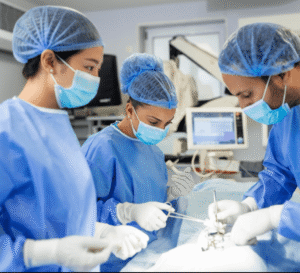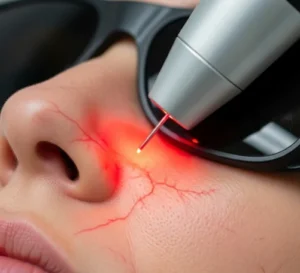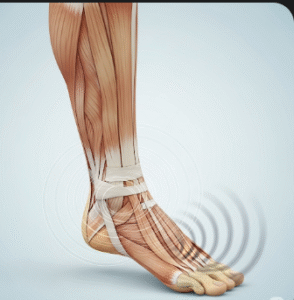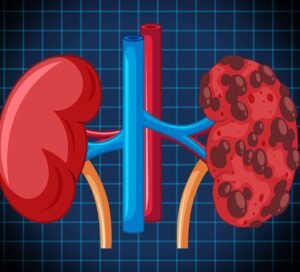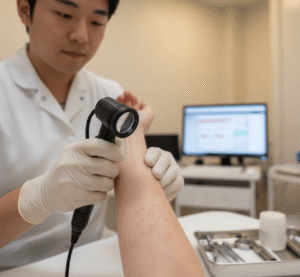Overview
Auto-brewery syndrome (ABS), also known as gut fermentation syndrome, is a rare condition where the digestive system produces ethanol (alcohol) internally through fermentation of carbohydrates by fungi or bacteria. People with ABS may appear intoxicated without consuming alcohol. In Korea, medical advancements and specialized gastrointestinal care offer effective diagnosis and treatment for this unusual disorder.
What is Auto-brewery Syndrome?
Auto-brewery syndrome is a condition in which yeast or bacteria in the gastrointestinal tract ferment ingested carbohydrates into ethanol, leading to elevated blood alcohol levels. The condition can be mistaken for alcohol abuse, but it results from an internal metabolic dysfunction. The most common culprit is an overgrowth of yeast like Saccharomyces cerevisiae or Candida species.
Symptoms
- Unexplained intoxication symptoms (slurred speech, dizziness, euphoria)
- Nausea and vomiting
- Fatigue and confusion
- Brain fog or memory issues
- Mood swings or depression
- Headaches
- Gastrointestinal discomfort (bloating, gas, abdominal pain)
- Difficulty concentrating
Causes
- Overgrowth of fermenting yeast or bacteria in the gut
- Use of antibiotics disrupting normal gut flora
- Diet high in carbohydrates and sugars
- Underlying gastrointestinal diseases like Crohn’s or short bowel syndrome
- Poor immune function
- Liver dysfunction affecting alcohol metabolism
Risk Factors
- Recent use of antibiotics or antifungals
- Diets rich in sugars and refined carbs
- History of gastrointestinal surgeries
- Diabetes or metabolic disorders
- Immune deficiency conditions
- Chronic gut dysbiosis or fungal overgrowth
Complications
- Chronic intoxication-like episodes
- Legal or social consequences from being falsely accused of alcohol use
- Relationship or occupational problems
- Liver damage from chronic endogenous ethanol exposure
- Mental health issues (anxiety, depression)
- Nutritional deficiencies
Prevention
- Avoid excessive sugar and refined carbohydrate intake
- Maintain a healthy gut microbiome with probiotics and prebiotics
- Avoid unnecessary antibiotic use
- Monitor for symptoms after antibiotic therapy
- Early diagnosis and treatment of gut fungal infections
- Seek regular gastrointestinal health checkups if at risk
Treatment Options in Korea
South Korea offers state-of-the-art care for rare metabolic and gastrointestinal conditions like Auto-brewery Syndrome. Top institutions such as Seoul National University Hospital, Samsung Medical Center, and Soonchunhyang University Hospital provide multidisciplinary management involving gastroenterology, infectious disease, and nutrition specialists.
1. Diagnosis
- Blood alcohol testing: During fasting and post-meal periods
- Glucose challenge test: To see if carbohydrates lead to alcohol production
- Stool and gut flora analysis: To detect yeast or fungal overgrowth
- Endoscopy and biopsy: To evaluate gut condition
- Liver function tests: To rule out liver-related alcohol metabolism issues
2. Medical Treatment
- Antifungal medications (e.g., fluconazole, nystatin): To eliminate yeast overgrowth
- Probiotics and prebiotics: To restore healthy gut flora
- Low-carbohydrate diet: To limit fermentation substrate
- Vitamin and mineral supplements: To address nutritional imbalances
3. Lifestyle and Support
- Nutritional counseling: To maintain a yeast-restrictive diet
- Psychological support: For coping with social or emotional stress
- Legal documentation: Some patients may need medical certification to explain their condition in legal or occupational situations
4. Monitoring
- Regular follow-up to monitor recurrence
- Periodic blood alcohol testing during treatment
- Ongoing gut health monitoring with microbiome analysis







